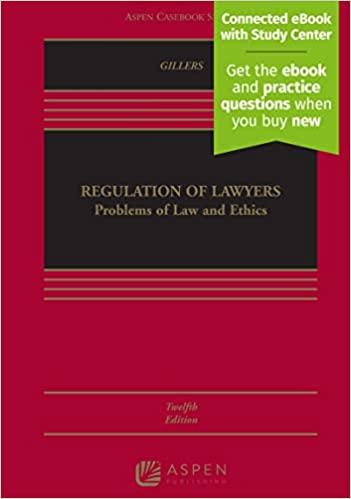Question
Annotation Bibliography What is it? A list of citations to books, articles, and documents. Each citation is followed by a brief (usually about 150 words)
Annotation Bibliography
What is it? "A list of citations to books, articles, and documents. Each citation is followed by a brief (usually about 150 words) descriptive and evaluative paragraph, the annotation. The purpose of the annotation is to inform the reader of the relevance, accuracy, and quality of the sources cited."
The purposes of the annotation bibliography are as follows:
- summarize,
- assess or evaluate a source,
- reflect on the source's possible uses for the project at hand
The Process
Creating an annotated bibliography calls for the application of a variety of intellectual skills: concise exposition, succinct analysis, and informed library research.
First, locate and record citations to books, periodicals, and documents that may contain useful information and ideas on your topic. Thoroughly, examine and review the actual items. Then choose those works that provide a variety of perspectives on your topic. (If you find a good opposing source, hold on to it for the next assignment!)
Cite the book, article, or document using the appropriate MLA style.
Summarize: Write a concise annotation that summarizes the central theme and scope of the book or article. Include one or more sentences that (a) evaluate the authority or background of the author, (b) comment on the intended audience, (c) compare or contrast this work with another you have cited, or (d) explain how this work illuminates your bibliography topic.
Evaluate: (a) look for articles published in scholarly journals or sources that require certain standards or criteria be met before publication. (b) look for materials at web sites that focus on scholarly resources. (e.g. Google Scholar) (c) compare several opinions.
Reflect: explain the relevance or usefulness of your research topic(s). Conclude how it will be useful.
Format
Each source must be listed in MLA format which also means in alphabetical order. Below each source, the description is indented to the left by 1 inch and double-spaced. No indentation for each paragraph is needed.
Sample MLA Annotation via Purdue Owl
Lamott, Anne.Bird by Bird: Some Instructions on Writing and Life. Anchor Books, 1995.
Lamott's book offers honest advice on the nature of a writing life, complete with its insecurities and failures. Taking a humorous approach to the realities of being a writer, the chapters in Lamott's book are wry and anecdotal and offer advice on everything from plot development to jealousy, from perfectionism to struggling with one's own internal critic.
In the process, Lamott includes writing exercises designed to be both productive and fun. Lamott offers sane advice for those struggling with the anxieties of writing, but her main project seems to be offering the reader a reality check regarding writing, publishing, and struggling with one's own imperfect humanity in the process. Rather than a practical handbook to producing and/or publishing, this text is indispensable because of its honest perspective, its down-to-earth humor, and its encouraging approach.
Chapters in this text could easily be included in the curriculum for a writing class. Several of the chapters in Part 1 address the writing process and would serve to generate discussion on students' own drafting and revising processes. Some of the writing exercises would also be appropriate for generating classroom writing exercises. Students should find Lamott's style both engaging and enjoyable.
Instructions
You will follow the format that is shown above. You must have at least 3 sources.
Step by Step Solution
There are 3 Steps involved in it
Step: 1

Get Instant Access to Expert-Tailored Solutions
See step-by-step solutions with expert insights and AI powered tools for academic success
Step: 2

Step: 3

Ace Your Homework with AI
Get the answers you need in no time with our AI-driven, step-by-step assistance
Get Started


